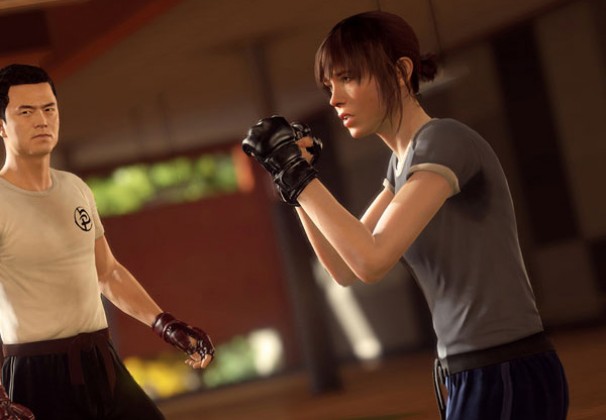
When developer Quantic Dream released “Heavy Rain” in 2010, it was a breath of fresh air. Rather than build a game focused on mechanics, “Heavy Rain” first and foremost served as a story with added, albeit minimal, gameplay. You didn’t so much play it as you watched it while occasionally interacting. Three years later, “Beyond: Two Souls” looks to replicate that success and do it with some big names to boot.
“Beyond” is the story of Jodie Holmes, a girl with an entity named Aiden that is constantly with her at all times. The story takes place over the course of 15 years. The narrative is nonlinear, jumping around the timeline of her life without warning.
The setup is confusing to say the least — the player will witness a scene in which Jodie is a child, only to jump to an adult Jodie moments later and to then be thrown into a scenario featuring a teen Jodie. Considering the over 10-hour length of the game, its lack of focus leaves the player confused.
As troublesome as the narrative can be, it’s brought to life wonderfully by the actors. Ellen Page lends her voice and likeness to star as Jodie, delivering an incredible performance. The always creepy Willem Dafoe costars as Nathan Dawkins, a doctor studying Jodie and Aiden at the Department of Paranormal Activity. Their performances amaze, as the majority of the game’s acting is brought to life via motion capture. The game appears startlingly realistic, with Page looking especially true-to-life at times.
While “Beyond” is an interactive drama meant to be watched more than played, the controls that are in place work well. Flicking the right analog stick performs most actions, and there are many to perform, ranging from killing helicopter pilots to making dolls have a tea party. The minimalist controls help the player focus on the story.
Player choice is a key part of the “Beyond” experience. Players can have Jodie lie to someone, tell the truth or use Aiden to wreak havoc all in one scenario. All choices are presented as if they’re impacting the story, though sadly this is more an illusion than true player agency. “Beyond” is a ride that the player is along for, not one of which they are the conductor. “Heavy Rain” offered a true sense of control for the pla-yer, where every choice drastically affected the outcome of the plot. The way “Beyond” fails to incorporate the will of the player in a major way feels like a huge step back.
With “Beyond: Two Souls,” Quantic Dream tried to one-up the studio’s previous work. In terms of presentation, they outdid themselves, creating a truly beautiful and well-acted video game. It’s the story, however, that ultimately fails — a confusing tale of a girl and her ghost that seems to be leading nowhere five hours into the game is the ultimate downfall of a game meant to emphasize the importance of its narrative.
A version of this article appeared in the Wednesday, Oct. 16. print edition. Alex Rakowski is a contributing writer. Email him at [email protected].






















































































































































